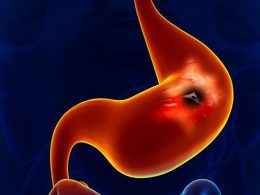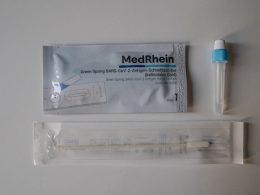Gluten sensitivity and celiac disease have garnered significant attention in recent years, with more people than ever adopting gluten-free diets. While these dietary choices are essential for those truly affected by gluten-related disorders, a complex web of health conditions can mimic the symptoms of gluten sensitivity, leading to potential misdiagnoses. In this article, we’ll explore various health issues often mistaken for gluten sensitivity and the importance of accurate diagnoses.
The Gluten Sensitivity Conundrum
Gluten sensitivity, non-celiac gluten sensitivity (NCGS), and celiac disease are often used interchangeably, but they represent distinct conditions. Celiac disease is an autoimmune disorder triggered by the ingestion of gluten, leading to intestinal damage. In contrast, NCGS is a less-defined condition characterized by gastrointestinal and extra-intestinal symptoms related to gluten consumption. But what happens when similar symptoms arise from other health issues?
The Mimics of Gluten Sensitivity
Several health conditions share symptoms with gluten sensitivity, making it challenging to differentiate between them. Here are some of the notable culprits:
1. Irritable Bowel Syndrome (IBS)
IBS is a common gastrointestinal disorder with symptoms like abdominal pain, bloating, and altered bowel habits. These symptoms can overlap with NCGS, leading to misdiagnosis.
2. Inflammatory Bowel Disease (IBD)
Conditions like Crohn’s disease and ulcerative colitis, collectively known as IBD, can manifest with digestive distress similar to that of NCGS.

3. Food Allergies
Food allergies, especially to wheat, can cause symptoms akin to gluten sensitivity. Differentiating between the two is crucial for proper management.
4. Small Intestinal Bacterial Overgrowth (SIBO)
SIBO is characterized by an overgrowth of bacteria in the small intestine, leading to bloating, diarrhea, and malabsorption. These symptoms can be confused with gluten sensitivity.
5. Non-Celiac Wheat Sensitivity
Some individuals may experience symptoms like headaches and fatigue when consuming wheat, unrelated to gluten. This condition, known as non-celiac wheat sensitivity, can be mistaken for NCGS.
The Importance of Accurate Diagnosis
Misdiagnosing health conditions can have significant consequences. When individuals self-diagnose or are incorrectly diagnosed with gluten sensitivity, they may adopt restrictive diets without proper guidance. This can lead to nutrient deficiencies, impaired quality of life, and unnecessary anxiety. Therefore, it’s crucial to seek accurate diagnosis through:
Comprehensive Evaluation
A thorough medical evaluation, including detailed medical history, physical examination, and laboratory tests, is essential to rule out other health conditions.
Collaboration with Healthcare Providers
Collaborate with healthcare providers, including gastroenterologists and allergists, who can conduct specific tests and assessments to pinpoint the underlying issue.
Dietitian Support
Dietitians can play a critical role in evaluating dietary habits and guiding individuals toward appropriate dietary changes based on their specific health condition.
The Road to Accurate Diagnosis
If you suspect gluten sensitivity but are experiencing persistent symptoms, it’s essential to seek professional help. Here’s how to navigate the road to an accurate diagnosis:
1. Keep a Symptom Journal
Document your symptoms, including their onset, duration, and severity. This can provide valuable information to healthcare providers.
2. Consult a Healthcare Provider
Schedule an appointment with a healthcare provider who specializes in digestive disorders. Be prepared to discuss your symptoms, medical history, and any family history of related conditions.
3. Undergo Appropriate Testing
Follow your healthcare provider’s recommendations for diagnostic tests. These may include blood tests for celiac disease, allergy tests, and gastrointestinal evaluations.
4. Consider a Dietitian’s Guidance
A registered dietitian can help you navigate dietary changes, whether it involves a gluten-free diet or other dietary modifications based on your diagnosis.

Conclusion
The world of gluten sensitivity is intricate, and its symptoms can easily be confused with various other health conditions. It’s crucial to understand that while adopting a gluten-free diet is essential for those with true gluten-related disorders, accurate diagnosis is paramount. Working collaboratively with healthcare providers and dietitians can help individuals unravel the web of potential misdiagnoses, ensuring they receive appropriate care and guidance for their specific health issues.












